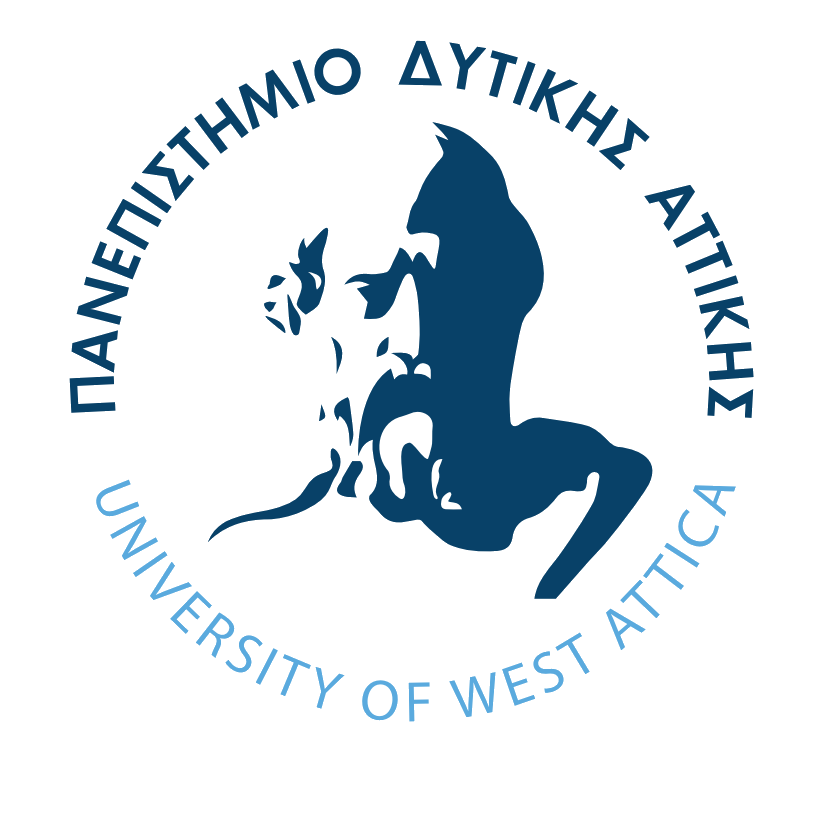MRES.A.01 Research Methodology - Scientific Writing (MRES.A.01)
Stelios POTIRAKIS & Ioannis Th. FAMELIS
This course module primarily aims at student skills development at the graduate level, on the issues of (a) research methodology and (b) scientific writing. These are ‘horizontal’ or across-areas subjects; as such, they are expected to be of value and immediate usefulness to all students, regardless of the specific specialization area selected by each student.
LessThis course module primarily aims at student skills development at the graduate level, on the issues of (a) research methodology and (b) scientific writing. These are ‘horizontal’ or across-areas subjects; as such, they are expected to be of value and immediate usefulness to all students, regardless of the specific specialization area selected by each student.
This course module primarily aims at student skills development at the graduate level, on the issues of (a) research methodology and (b) scientific writing. These are ‘horizontal’ or across-areas subjects; as such, they are expected to be of value and immediate usefulness to all students, regardless of the specific specialization area selected by each student.
Course Description
Course Objectives/Goals
Upon successful completion of the course, students are expected to be able to:
- Understand and explain the difference between research and development
- Appreciate the role of English language mastery in order to write scientific texts in Science and Engineering,
- Understand and apply basic quantitative and qualitative research methods,
- Understand, describe and explain research ethics, proper citation and plagiarism avoidance,
- Perform bibliographic search and retrieval of pertinent information,
- Understand and explain how is research is carried out and how it is connected to the presentation of results in the form of an article,
- Name and describe the structural parts of a scientific article and their correct sequence,
- Put together sound argumentation and produce accurate citation and referencing,
- Perform correct formatting of a sample manuscript (text and references),
- Name, describe and explain the stages of the manuscript submission and review process,
- Perform a sample review and write reviewers’ comments,
- Write an acceptable sample answer to reviewers’ comments.
Prerequisites/Prior Knowledge
Use of English language at B2 level or higher (ideally, at C2 level)Assessment Methods
The final grade is composed of 3 parts:
- sample regular paper or short review paper write-up (student is free to select paper subject; supervisor consent is required; the subject is usually related to the student’s research project topic) x 60%
- the presentation of this paper in class x 20%
- the review of the paper written by a classmate x 20%
Grading criteria for (a):
- Paper structure
- Understanding and critical assessment of existing research
- Sound documentation of and argumentation on the proposed research results
- Correct formatting and referencing
Grading criteria for (b):
- Presentation structure
- Content formatting
- Fluency in presentation and ability to answer questions on it
Grading criteria for (c):
- Review structure
- Control points as in (a) and (b) above, used as review criteria,
- Expression, language and style of the review
Bibliography
- Research Methodology and Scientific Writing, C. George Thomas, Second Edition, 2021, Springer Cham, ISBN: 978-3-030-64864-0, DOI: https://doi.org/10.1007/978-3-030-64865-7.
- Writing for Science and Engineering, Heather Silyn-Roberts, Second Edition, 2013, Elsevier, ISBN: 978-0-08-098285-4, DOI: https://doi.org/10.1016/C2011-0-07858-4.
- Scientific Papers and Presentations, Martha Davis, Kaaron J. Davis and Marion M. Dunagan, Third Edition, 2013, Elsevier, ISBN: 978-0-12-384727-0, DOI: https://doi.org/10.1016/C2009-0-64256-2.
- Scientific Papers and Presentations, by Martha Davis. Academic press, 1997
- Publications Handbook and Style Manual, Chapter 5. Tables and Figures, ASA–CSSA–SSSA, 5585 Guilford Rd., Madison, WI 53711, USA.
RESEARCH ARTICLES
- R. N. Reis and A. I. Reis, "How to write your first scientific paper," 2013 3rd Interdisciplinary Engineering Design Education Conference, Santa Clara, CA, USA, 2013, pp. 181-186, DOI: https://doi.org/10.1109/IEDEC.2013.6526784.
- A. Linte, "Tips on Scientific Writing and Manuscript Preparation [Continuing Education]," in IEEE Pulse, vol. 5, no. 6, pp. 58-60, Nov.-Dec. 2014, DOI: https://doi.org/10.1109/10.1109/MPUL.2014.2355322.
- A. Longo, Preparing a Research Paper in IEEE Format, on-line available: https://www.unlv.edu/sites/default/files/page_files/27/Engineering-PreparingPaperIEEE-Sept15.pdf (last access: 8/2/23).
- Gain, Research Methods: Technical Writing, on-line available: https://slideplayer.com/slide/4401286/ (last access: 8/2/23).
- Sainani, Scientific Writing, on-line available: https://web.stanford.edu/~kcobb/courses/writing/ (last access: 8/2/23).
- Measuring Your Impact: Impact Factor, Citation Analysis, and other Metrics: Journal Impact Factor (IF), University Library, on-line available: https://researchguides.uic.edu/if/impact (last access: 8/2/23).
TOOLS
WEBSITES
- https://dl.sciencesocieties.org/publications/style
- http://abacus.bates.edu/~ganderso/biology/resources/writing/HTWtoc.html
- https://www.springer.com/gp/authors-editors/authorandreviewertutorials/writing-a-journal-manuscript/figures-and-tables/10285530
- https://www.elsevier.com/connect/11-steps-to-structuring-a-science-paper-editors-will-take-seriously#step1
Upon successful completion of the course, students are expected to be able to:
- Understand and explain the difference between research and development
- Appreciate the role of English language mastery in order to write scientific texts in Science and Engineering,
- Understand and apply basic quantitative and qualitative research methods,
- Understand, describe and explain research ethics, proper citation and plagiarism avoidance,
- Perform bibliographic search and retrieval of pertinent information,
- Understand and explain how is research is carried out and how it is connected to the presentation of results in the form of an article,
- Name and describe the structural parts of a scientific article and their correct sequence,
- Put together sound argumentation and produce accurate citation and referencing,
- Perform correct formatting of a sample manuscript (text and references),
- Name, describe and explain the stages of the manuscript submission and review process,
- Perform a sample review and write reviewers’ comments,
- Write an acceptable sample answer to reviewers’ comments.
The final grade is composed of 3 parts:
- sample regular paper or short review paper write-up (student is free to select paper subject; supervisor consent is required; the subject is usually related to the student’s research project topic) x 60%
- the presentation of this paper in class x 20%
- the review of the paper written by a classmate x 20%
Grading criteria for (a):
- Paper structure
- Understanding and critical assessment of existing research
- Sound documentation of and argumentation on the proposed research results
- Correct formatting and referencing
Grading criteria for (b):
- Presentation structure
- Content formatting
- Fluency in presentation and ability to answer questions on it
Grading criteria for (c):
- Review structure
- Control points as in (a) and (b) above, used as review criteria,
- Expression, language and style of the review
- Research Methodology and Scientific Writing, C. George Thomas, Second Edition, 2021, Springer Cham, ISBN: 978-3-030-64864-0, DOI: https://doi.org/10.1007/978-3-030-64865-7.
- Writing for Science and Engineering, Heather Silyn-Roberts, Second Edition, 2013, Elsevier, ISBN: 978-0-08-098285-4, DOI: https://doi.org/10.1016/C2011-0-07858-4.
- Scientific Papers and Presentations, Martha Davis, Kaaron J. Davis and Marion M. Dunagan, Third Edition, 2013, Elsevier, ISBN: 978-0-12-384727-0, DOI: https://doi.org/10.1016/C2009-0-64256-2.
- Scientific Papers and Presentations, by Martha Davis. Academic press, 1997
- Publications Handbook and Style Manual, Chapter 5. Tables and Figures, ASA–CSSA–SSSA, 5585 Guilford Rd., Madison, WI 53711, USA.
- R. N. Reis and A. I. Reis, "How to write your first scientific paper," 2013 3rd Interdisciplinary Engineering Design Education Conference, Santa Clara, CA, USA, 2013, pp. 181-186, DOI: https://doi.org/10.1109/IEDEC.2013.6526784.
- A. Linte, "Tips on Scientific Writing and Manuscript Preparation [Continuing Education]," in IEEE Pulse, vol. 5, no. 6, pp. 58-60, Nov.-Dec. 2014, DOI: https://doi.org/10.1109/10.1109/MPUL.2014.2355322.
- A. Longo, Preparing a Research Paper in IEEE Format, on-line available: https://www.unlv.edu/sites/default/files/page_files/27/Engineering-PreparingPaperIEEE-Sept15.pdf (last access: 8/2/23).
- Gain, Research Methods: Technical Writing, on-line available: https://slideplayer.com/slide/4401286/ (last access: 8/2/23).
- Sainani, Scientific Writing, on-line available: https://web.stanford.edu/~kcobb/courses/writing/ (last access: 8/2/23).
- Measuring Your Impact: Impact Factor, Citation Analysis, and other Metrics: Journal Impact Factor (IF), University Library, on-line available: https://researchguides.uic.edu/if/impact (last access: 8/2/23).
- https://dl.sciencesocieties.org/publications/style
- http://abacus.bates.edu/~ganderso/biology/resources/writing/HTWtoc.html
- https://www.springer.com/gp/authors-editors/authorandreviewertutorials/writing-a-journal-manuscript/figures-and-tables/10285530
- https://www.elsevier.com/connect/11-steps-to-structuring-a-science-paper-editors-will-take-seriously#step1
Students can find sample evaluation material for this course module under the "DOCUMENTS" in the left frame menu.
Introduction to research terminology, basic and applied research, research design and implementation issues, support – explanatory material development, publication and dissemination of research results.
Calendar
Announcements
- - There are no announcements -

